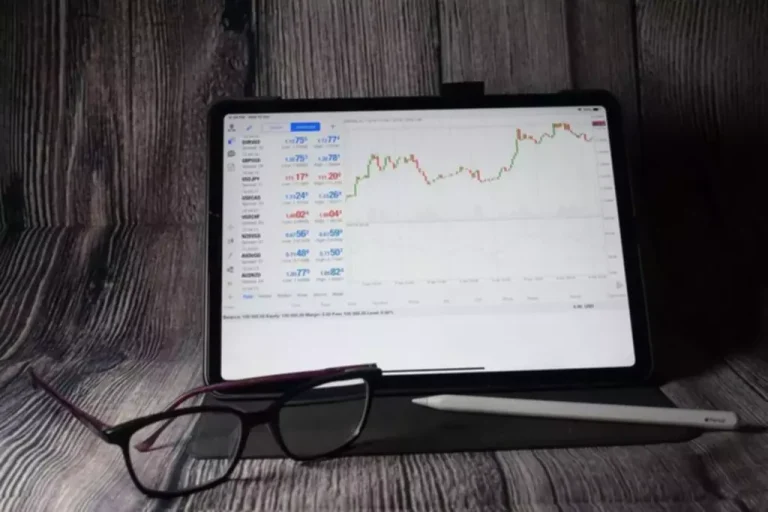Content
This doesn’t always work though, as a poor strategy will produce losses, resulting in a lower account balance, not a higher one. Investor’s compound gains tend to be slower as they usually rely on the reinvestment of Decentralized finance dividends (typically paid quarterly) to help grow their profit and loss. It’s not necessary for value investors to comb through volumes of financial data to find deals. Thousands of value mutual funds and ETFs offer shares in baskets of stocks thought to be undervalued.
What Is the Safest Investment Strategy for Earning High Returns?
J.P. Morgan Wealth Management is a business of JPMorgan Chase & Co., which offers investment products and services through J.P. Morgan Securities LLC (JPMS), a registered broker-dealer and investment adviser, https://www.xcritical.com/ member FINRA and SIPC. Insurance products are made available through Chase Insurance Agency, Inc. (CIA), a licensed insurance agency, doing business as Chase Insurance Agency Services, Inc. in Florida.

A portfolio that reacts to the market
And while the broader stock market has recovered, not all company stocks have. Buying individual stocks, like many traders do, raises the risk that you could lose the money you invest. Diversified funds, meanwhile, spread your money across hundreds of trading and investing difference companies.
What fees should I look for when trading?

There is a wide range of how active traders and investors are, with varying investment timeframes. Risk tolerance is the amount of risk that an investor is willing to endure. It plays a significant role in determining the type of investment strategy that someone chooses and how much they opt to invest. Investors with longer time horizons might be more willing to take on a riskier investment, while investors focused on a short-term financial goal might be more risk-averse. Growth investing is inherently riskier and generally only thrives during certain economic conditions.
Trading and Investing Tax Differences
Unlike investing, trading requires a great deal of time, effort, understanding of the markets, and research. Many traders are experienced and have a greater sense of how the markets work. As such, they may rely on the expertise of financial experts, such as financial advisors. Both investing and trading come with the possibility of risk and reward.
The examples above are intentionally cherry-picked to illustrate the volatility, risk, and potential rewards for traders. Even if a stock has been producing huge returns, you can’t benefit unless you happen to buy and sell at the right time. One of the reasons it’s so hard to find the right time to buy and sell stocks is because there’s no telling how markets will react to changes in capital markets. Diversification is a strategy to help reduce volatility and improve returns on a risk-adjusted basis. During a downturn, a broad-based portfolio generally won’t lose as much as a concentrated allocation could. Long-term investors diversify through different asset classes like stocks and bonds and within an asset class like small and mid-cap U.S. equity.
If you choose the latter, consider signing up with a robo-advisor. Relatedly, you’ll need to handle the ups and downs of the market. Ensure you can afford to invest before you start putting money away.
- Swing traders frequently use technical analysis, which involves analyzing trends in terms of both price movements and volume.
- Since my aim is to make a decent percentage profit in a short amount of time, borrowing costs are negligible.
- Meanwhile, investors face a lower probability of outperforming market averages, which can be frustrating for those seeking exceptional returns.
- Understanding what influences the prices of assets you trade can provide you with insights necessary for informed trading decisions.
- Predicting future profits is not possible, but it’s essential to understand how traders and investors generate returns.
- For example, a trader might use a margin account to trade stocks, which allows the trader to buy more stock than they would be able to purchase with their own capital.
Investors generally seek larger returns over an extended period through buying and holding. Traders, by contrast, take advantage of both rising and falling markets to enter and exit positions over a shorter time frame, taking smaller, more frequent profits. Whether trading stocks is a good idea will depend on your financial goals and situation. If you have time, energy and money to spare, then trading stocks could make sense for you. Just keep in mind that it’s hard to build a diversified portfolio by buying stocks of individual companies.
All investing is subject to risk, including the possible loss of the money you invest. The degree of fluctuation in the value of a security, mutual fund, or index, volatility is often expressed as a mathematical measure such as a standard deviation or beta. The greater a fund’s volatility, the wider the fluctuations between its high and low prices. Common mistakes to avoid in stock trading include letting your emotions overtake your decision-making, failing to create a plan and follow it, and overtrading, which involves excessive trades. The different types of stock trading include day trading, swing trading, position trading, and scalping. There is a lot of information out there, but if you want to know how to start trading stocks, you can take some simple, concrete actions.
We believe everyone should be able to make financial decisions with confidence. Options trading entails significant risk and is not appropriate for all investors. Before trading options, please read Characteristics and Risks of Standardized Options. Supporting documentation for any claims, if applicable, will be furnished upon request.
The trading of a universe of investments, based on factors like supply and demand. For example, the “stock market” refers to the trading of stocks. Once you have developed your trading plan, you can test it out by doing some paper trading, an approach you can use before you put your capital at risk. You can try out your trading strategies through paper trading to see what returns (and losses) they would produce.
One of the challenges of day trading in a brokerage account are the tax implications. It’s easy to trade stocks with just a couple of clicks, but the tax impact isn’t always as clear. Short-term capital gains are taxed as regular income which can push you into a higher tax bracket and change your eligibility for tax deductions or credits.
If you’re socially conscious, you may consider responsible investing. Now is the time to figure out what you want your investment portfolio to be made of and what it will look like. The investing information provided on this page is for educational purposes only.